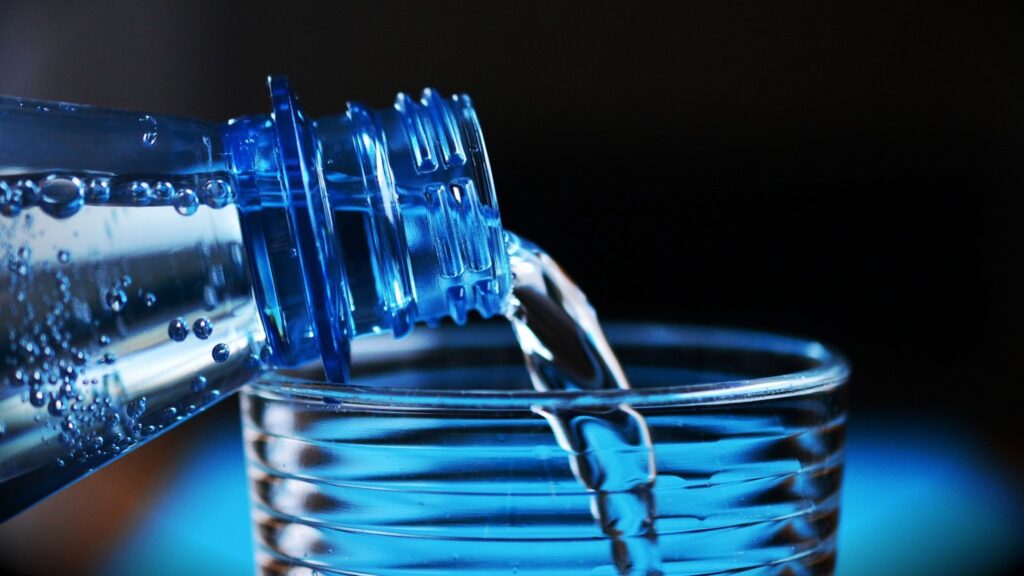
Staying well-hydrated throughout life could reduce the risk of developing heart failure, according to research presented at ESC Congress 2021.
“Our study suggests that maintaining good hydration can prevent or at least slow down the changes within the heart that lead to heart failure,” said study author Dr. Natalia Dmitrieva of the National Heart, Lung, and Blood Institute, part of the National Institutes of Health, Bethesda, US. “The findings indicate that we need to pay attention to the amount of fluid we consume every day and take action if we find that we drink too little.”
Recommendations on daily fluid intake vary from 1.6 to 2.1 litres for women and 2 to 3 litres for men. However, worldwide surveys have shown that many people do not meet even the lower ends of these ranges. Serum sodium is a precise measure of hydration status: when people drink less fluid, the concentration of serum sodium increases. The body then attempts to conserve water, activating processes known to contribute to the development of heart failure.
Dr. Dmitrieva said: “It is natural to think that hydration and serum sodium should change day to day depending on how much we drink on each day. However, serum sodium concentration remains within a narrow range over long periods,3 which is likely related to habitual fluid consumption.”
This study examined whether serum sodium concentration in middle age, as a measure of hydration habits, predicts the development of heart failure 25 years later. The researchers also examined the connection between hydration and thickening of the walls of the heart’s main pumping chamber (left ventricle) – called left ventricular hypertrophy – which is a precursor to heart failure diagnosis.
The analysis was performed in 15,792 adults in the Atherosclerosis Risk in Communities (ARIC) study. Participants were 44 to 66 years old at recruitment and were evaluated over five visits until age 70 to 90.
Participants were divided into four groups based on their average serum sodium concentration at study visits one and two (conducted in the first three years): 135–139.5, 140–141.5, 142–143.5, and 144–146 mmol/l. For each sodium group, the researchers then analysed the proportion of people who developed heart failure and left ventricular hypertrophy at visit five (25 years later).
Higher serum sodium concentration in midlife was associated with both heart failure and left ventricular hypertrophy 25 years later. Serum sodium remained significantly associated with heart failure and left ventricular hypertrophy after adjusting for other factors related to the development of heart failure: age, blood pressure, kidney function, blood cholesterol, blood glucose, body mass index, sex and smoking status. Every 1 mmol/l increase in serum sodium concentration in midlife was associated with 1.20 and 1.11 increased odds of developing left ventricular hypertrophy and heart failure, respectively, 25 years later.
The risks of both left ventricular hypertrophy and heart failure at age 70 to 90 began to increase when serum sodium exceeded 142 mmol/l in midlife.
Dr. Dmitrieva said: “The results suggest that good hydration throughout life may decrease the risk of developing left ventricular hypertrophy and heart failure. In addition, our finding that serum sodium exceeding 142mmol/l increases the risk of adverse effects in the heart may help to identify people who could benefit from an evaluation of their hydration level. This sodium level is within the normal range and would not be labelled as abnormal in lab test results but could be used by physicians during regular physical exams to identify people whose usual fluid intake should be assessed.”
 Lipid researcher, 98, reports on the dietary causes of heart disease
Lipid researcher, 98, reports on the dietary causes of heart disease One avocado a day helps lower ‘bad’ cholesterol for heart healthy benefits
One avocado a day helps lower ‘bad’ cholesterol for heart healthy benefits Common Pain Cream Could Protect Heart During Attack
Common Pain Cream Could Protect Heart During Attack Reusable plastic bottles release hundreds of chemicals
Reusable plastic bottles release hundreds of chemicals